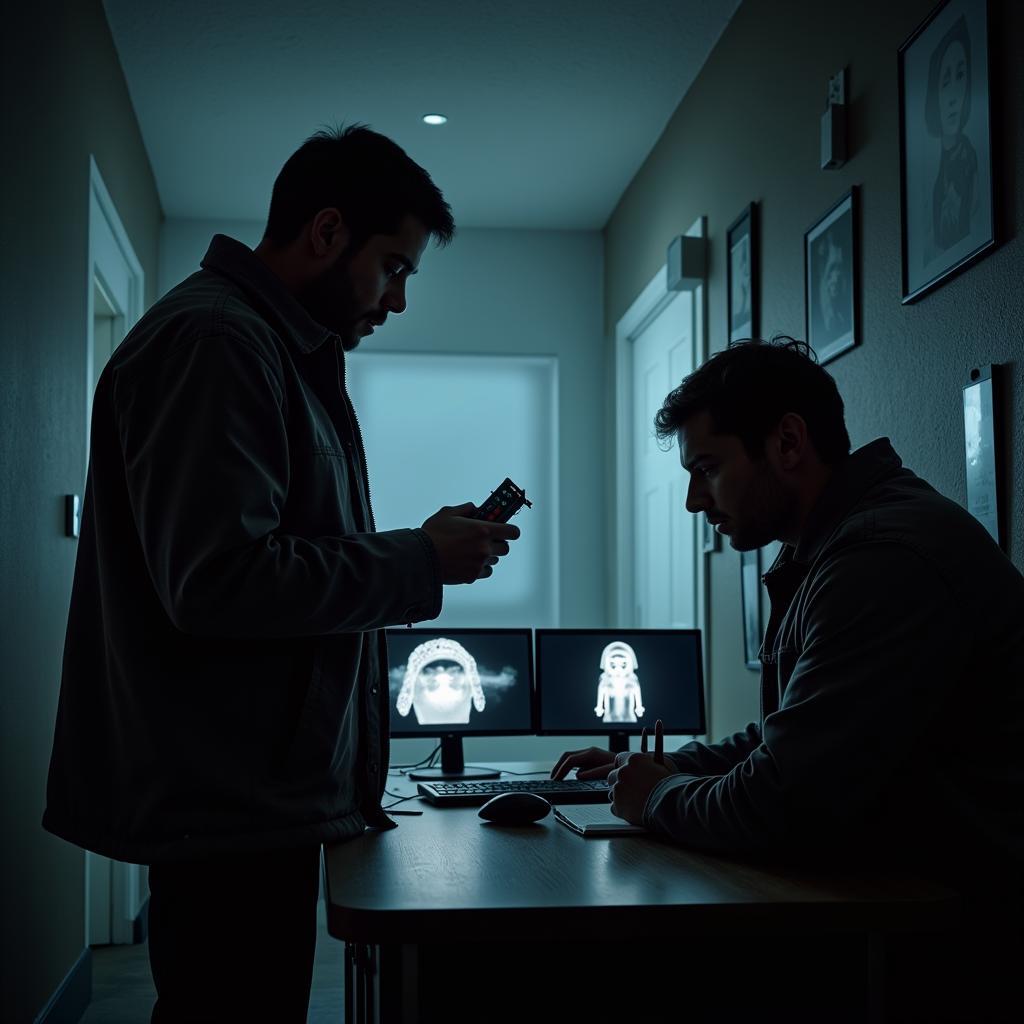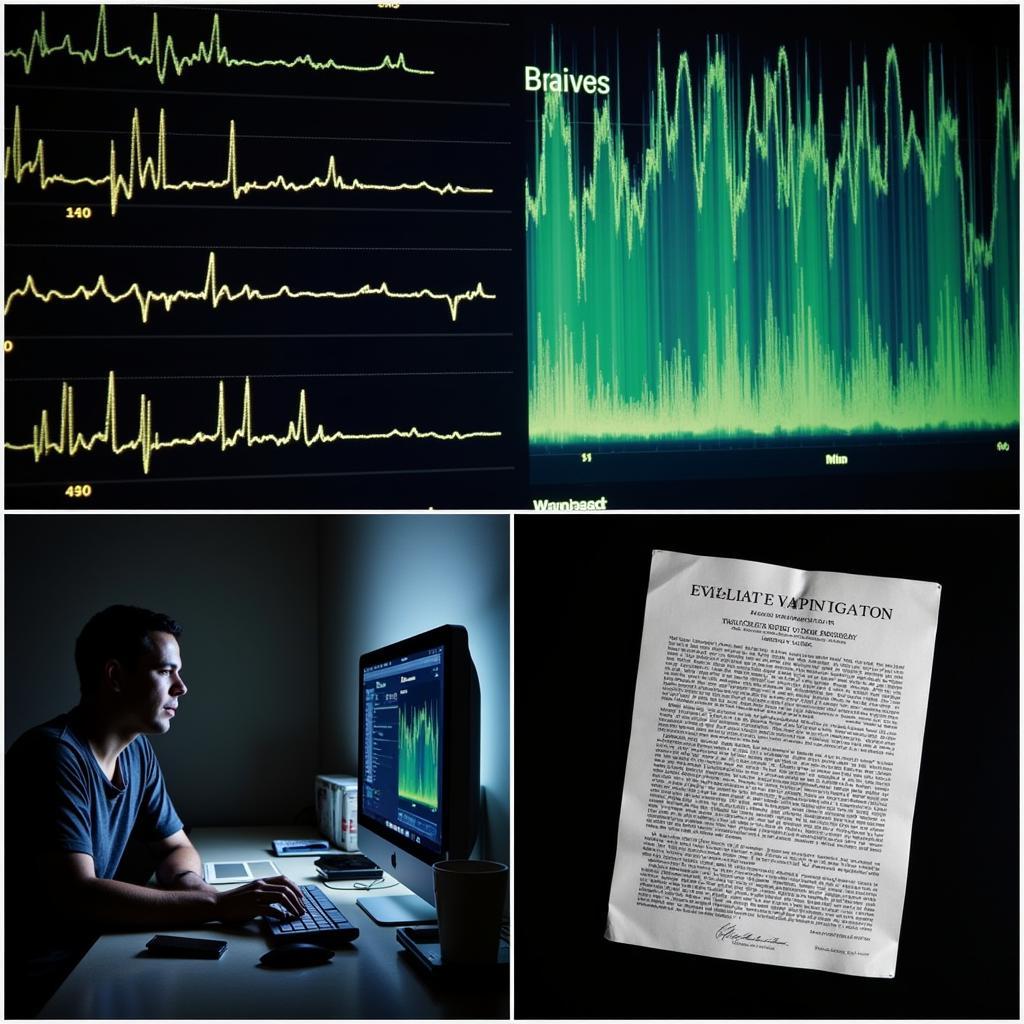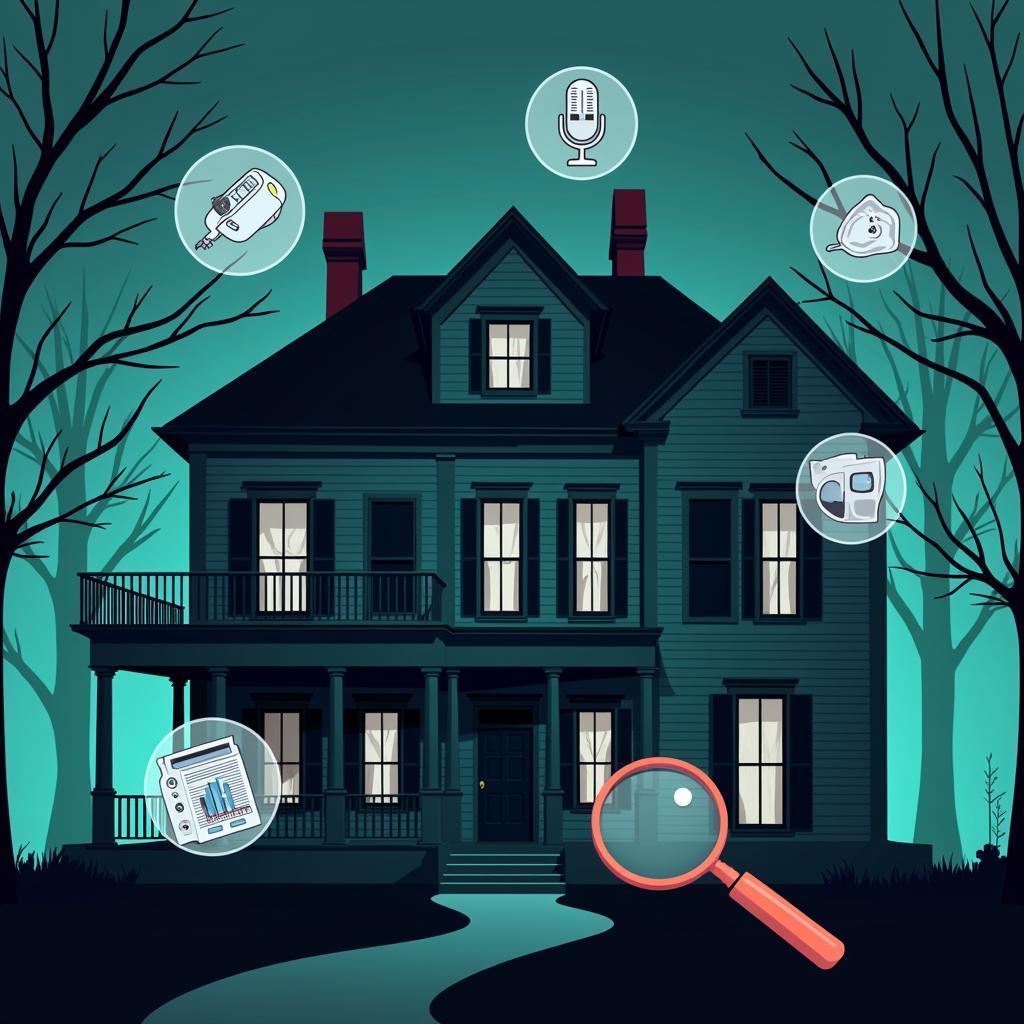Research and evaluation are two cornerstones of any credible paranormal investigation. Understanding the difference between these two crucial concepts is essential for separating fact from fiction in the world of the unexplained. But what exactly sets them apart?
 Research vs. Evaluation in Paranormal Investigations
Research vs. Evaluation in Paranormal Investigations
Diving Deep into Research: Exploring the Unknown
Research in paranormal investigation focuses on gathering data and information related to the phenomenon being studied. This involves exploring historical records, eyewitness accounts, local legends, and environmental factors that could be contributing to the alleged paranormal activity. It’s about asking questions, collecting evidence, and building a foundation of understanding. For example, if a house is reported to be haunted, research might involve tracing the history of the property, interviewing current and former residents, and studying the surrounding area for any potential natural explanations. Think of research as the investigative phase, where we gather all the pieces of the puzzle. Have you ever wondered about the strengths of research studies? It’s precisely this meticulous approach that gives research its power.
What Does Research Entail in Paranormal Studies?
Research in the paranormal often includes analyzing EMF readings, reviewing audio and video recordings, and investigating potential physical anomalies. This process requires a skeptical yet open mind, seeking to identify both supporting and debunking evidence.
Evaluation: Making Sense of the Evidence
Evaluation, on the other hand, involves critically examining the data gathered during the research phase. It’s about analyzing the information collected and determining its relevance, credibility, and significance. This means separating potential evidence from mere coincidence or misinterpretation. Evaluation often involves applying scientific principles and logical reasoning to assess the validity of claims.
 Critical Analysis of Paranormal Data during Evaluation
Critical Analysis of Paranormal Data during Evaluation
How Evaluation Works in Paranormal Research
Evaluation in paranormal investigations often involves consulting with experts in various fields, such as physicists, psychologists, and historians. This collaborative approach helps ensure that all possible explanations are considered before attributing an event to paranormal causes. It’s like putting the puzzle pieces together and seeing if they form a coherent picture. This is where the true value of research vs. evaluation becomes apparent.
“Proper evaluation is just as crucial as thorough research,” says Dr. Emily Carter, a leading expert in parapsychology. “Without critical analysis, we risk drawing inaccurate conclusions from incomplete or misleading data.”
 Research and Evaluation in a Paranormal Case Study
Research and Evaluation in a Paranormal Case Study
Research vs. Evaluation: A Symbiotic Relationship
Research and evaluation are not mutually exclusive processes; they work together to form a complete investigative approach. Research provides the raw materials, while evaluation refines and interprets them. Just like methods in social science research, paranormal research and evaluation work hand in hand.
Why is Understanding Research vs. Evaluation Important?
Understanding the difference between research and evaluation is crucial for anyone interested in the paranormal. It empowers us to critically assess the validity of claims and to separate genuine investigations from sensationalized stories.
“The key to credible paranormal research is a balanced approach that combines rigorous research with objective evaluation,” adds Dr. Carter. “This helps us understand the true nature of unexplained phenomena.”
Conclusion: The Pursuit of Truth in the Paranormal
The quest to understand the paranormal requires a commitment to both research and evaluation. By embracing these two crucial processes, we can move closer to uncovering the truth behind the mysteries that lie beyond our current understanding. Remember, a true paranormal investigator knows that research design for action research is just as relevant in the search for the unknown. Research and evaluation are the keys to unlocking the secrets of the paranormal world.
FAQ
-
What is the first step in a paranormal investigation? Research is the initial step, involving information gathering and evidence collection.
-
Why is evaluation important? Evaluation helps determine the credibility and significance of the collected data.
-
Can research and evaluation be done simultaneously? Ideally, evaluation follows research, but they are interconnected processes.
-
What are some common research methods in paranormal investigation? Research methods include reviewing historical records, eyewitness interviews, and analyzing environmental factors.
-
What are some common evaluation techniques in paranormal investigation? Evaluation techniques include analyzing collected data using scientific principles and consulting with experts.
Need help with your own Paranormal Research? Contact us! Phone: 0904826292, Email: research@gmail.com or visit us at No. 31, Alley 142/7, P. Phú Viên, Bồ Đề, Long Biên, Hà Nội, Việt Nam. We have a 24/7 customer service team ready to assist you.